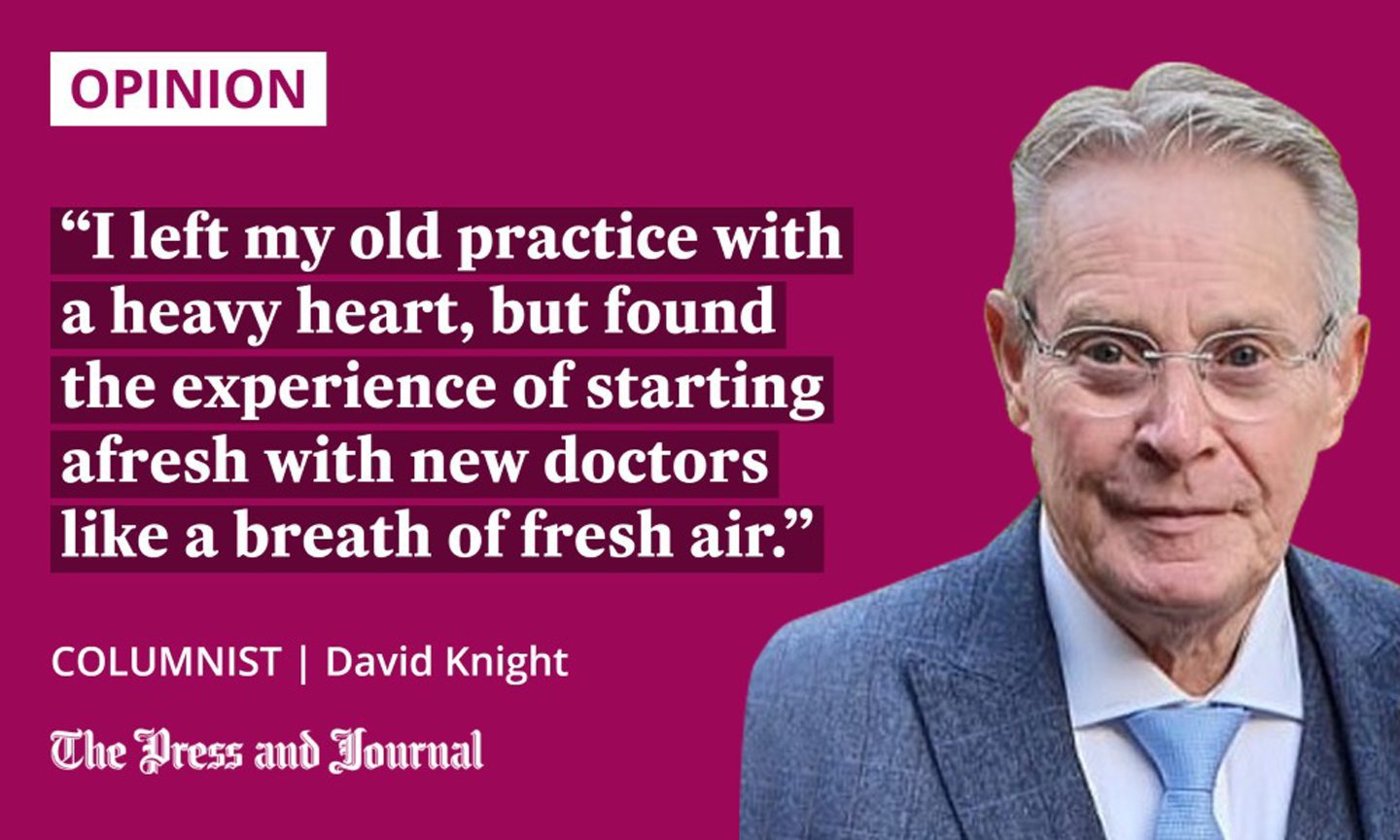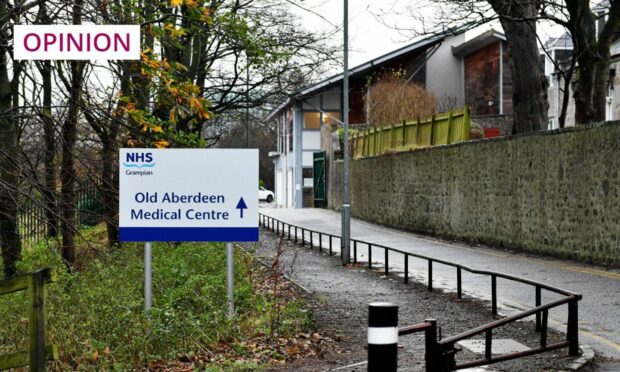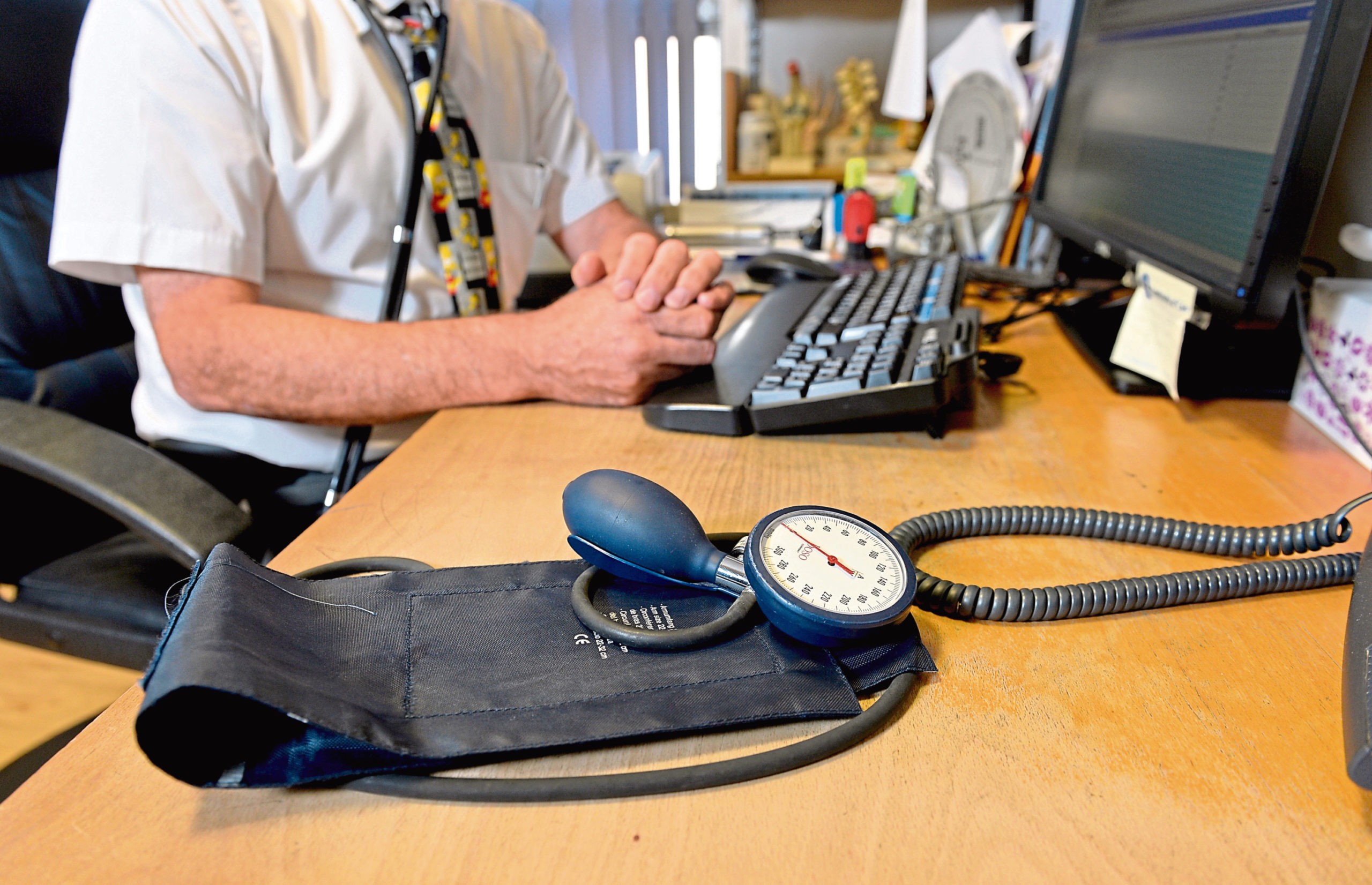I’m indebted to a reader who suggested that I should change the brand of brown sauce I’ve been buying.
He resisted the temptation to ladle it on too thick; he was more polite than that.
I revealed, in a column about the cost of living, that I bought Marks and Spencer brown sauce. So, his advice was that I should shop in low-budget food stores instead; a good point.
To be honest, I found the “molasses and apples” M&S promised would burst from the bottle were a little too sweet for my liking. So, I’ll renew my acquaintance with a trusty lifelong friend – HP brown sauce – which suits my spicier palate.

We’re pretty fast at switching to alternative brands or services these days when something isn’t to our taste: TV subscriptions, mobile phone contracts, and so on. But, not always; what about GPs, for example?
Changing GPs is not as simple as jumping from one supermarket shelf to another – and then back as the fancy takes us. They wouldn’t allow that, would they?
Moving between family doctors is a monumental decision and not to be taken lightly, if at all, even although the actual red tape is straightforward.
Nine vital organs removed in one go
As I was juggling brown sauce brands, I also switched GPs. I left my old practice with a heavy heart, but found the experience of starting afresh with new doctors like a breath of fresh air.
For three decades, I’d been associated with Old Aberdeen Medical Practice and its predecessor. I loved the friendly, family atmosphere that used to be there, and relationships, which gradually grew, with its wonderful team of long-serving GPs.
One of them once told me I reminded her of her dad (there’s a sign you are growing old), but I think it’s why she badgered me into taking routine check-ups.
She also helped save my life.
As a frontline GP, she knew the moment was right for a referral to a consultant. The rest is history: I had cancer and surgery removed it.
Sadly, within two years, the practice disintegrated. I won’t go into the whys and wherefores of the battle between its GPs and local NHS bosses who forced through different working practices. Suffice to say, the nine GPs voted with their feet and quit.
NHS officials claimed bewildered patients wouldn’t see the join, but controversy persisted like a running sore
If a body had nine vital organs removed in one go, it wouldn’t survive, and neither did the practice – except in name only. It began a fresh era in another medical group.
NHS officials claimed bewildered patients wouldn’t see the join, but controversy persisted like a running sore.
Scottish health minister Humza Yousaf has belatedly caved in to repeated complaints raised in Holyrood about the new practice’s appointments record and shockingly poor satisfaction levels among users. He ordered officials to investigate; I hope they can resolve these issues for the good of the practice and patients.
A GP crisis was blowing in the wind long ago
I left because I was searching for something which perhaps doesn’t exist. It was my Shangri-La or Holy Grail vision of GP perfection, or maybe the fictional Dr Finlay.
Ironically, as we ponder the NHS crumbling today, Dr Finlay and co in Tannochbrae also had mixed feelings – about absorption into the new NHS in 1947. Things would never be the same.
We cannot blame GPs or Covid for changes which restricted access to appointments in many places. A crisis was blowing in the wind long ago.
I was at a public meeting about the future of GPs a year before the pandemic. Several experienced general practitioners from the north-east were present.
The audience was left in no doubt that things had to change dramatically, especially our expectations of “on-demand”, face-to-face appointments. There were too many patients and not enough GPs.
Now, more than three years down the line, this debate is more intense. But it varies from place to place: correspondents told The P&J that appointments were easy to get at Torry and Danestone in Aberdeen, for example.
However, doctors’ leaders warned recently that GP numbers could drop even more drastically within a decade, due to burnout.
More hands-on than arm’s length
How we make best use of doctors’ time is a crucial issue. But many argue GPs should be more hands-on than arm’s length.
I once belonged to a group of volunteer patients who helped test medical students’ practical examination skills. Students were given a pretend brief about each “patient” and then marked by medical tutors, who observed their examinations and diagnosis.
Liz Truss promises everyone will be able to get a GP appointment within 2 weeks – as if this is good news.
Under the last Labour government the target was 48 hours. And they met that. pic.twitter.com/iaTgTREM5u
— Best for Britain (@BestForBritain) October 5, 2022
Not surprisingly, these were often tense affairs. One went off-brief and started examining me for real.
He turned to the tutor and said something along these lines: “I think this man is seriously ill and needs to be admitted to hospital.” With that, he exited, while I turned, ashen-faced, to the tutor.
The senior medic smiled: “It’s all right. There’s nothing wrong with you. He has to learn somehow.”
David Knight is the long-serving former deputy editor of The Press and Journal



Conversation